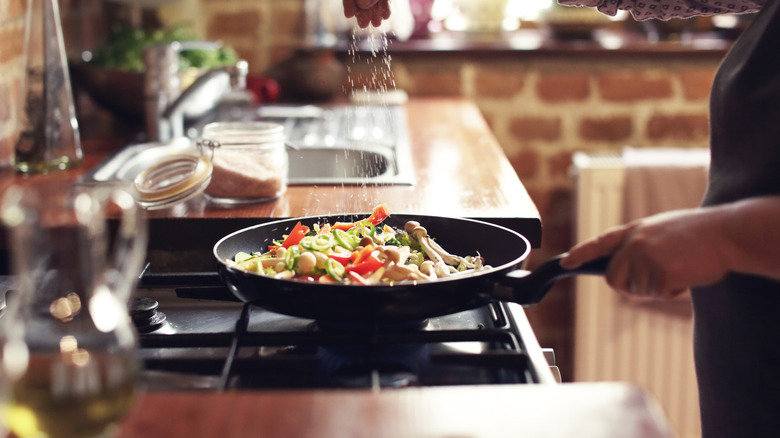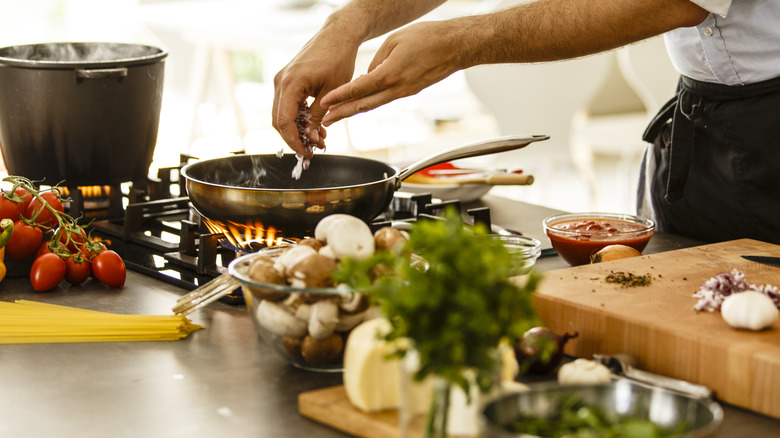When Seasoning A Dish, Consider How Heat Will Impact Potency
When you've been cooking for yourself for a while, it's common to expect certain dishes to turn out the same way each time. Minced garlic will always give food a pungent aroma. Lemon zest is sure to brighten up a dish. Yet, when the garlic is imperceptible and the lemon ends up making your food bitter, you'll discover that heat impacts the potency of seasonings.
Unless they're expired or consistently exposed to light, your herbs and spices shouldn't change in taste too much, right? It turns out that being heated can change the flavor of your seasonings and aromatics. If you've ever added onions or shallots right at the end of cooking a dish, you'll notice that it's much stronger than when it's been cooked down.
The same tends to go for seasonings. When they're all added together in the beginning, they mesh together, creating a unique fusion of flavors. If you want a particular spice to stand out, add it at the tail end of cooking. While that's a good place to start, there are certain herbs and spices that get stronger as they cook. Read ahead to learn how heat affects your favorite seasonings.
When to add seasonings while cooking
Although some seasonings are more apparent when added at the end, others benefit from being cooked long before. To create a richer experience with food, you should start toasting your spices. Oftentimes, heady spices like coriander or nutmeg can have a bitter taste. To activate the sweet, warmth within them, heat the whole spices on the stove for a deeper flavor.
On the other hand, fresh herbs should be added towards the end of cooking. Since they're milder than their dried counterparts, they'll lose flavor faster when cooked. However, the same doesn't go for rosemary. The woody herb tends to get stronger as it cooks, so add it at the end if you don't want it to overwhelm your dish.
For ground spices like paprika, garlic powder, or black pepper, add them right in the middle of cooking. Since they tend to be on the stronger side, they should have enough time to blend together and infuse the dish without engulfing the flavor of your food.

